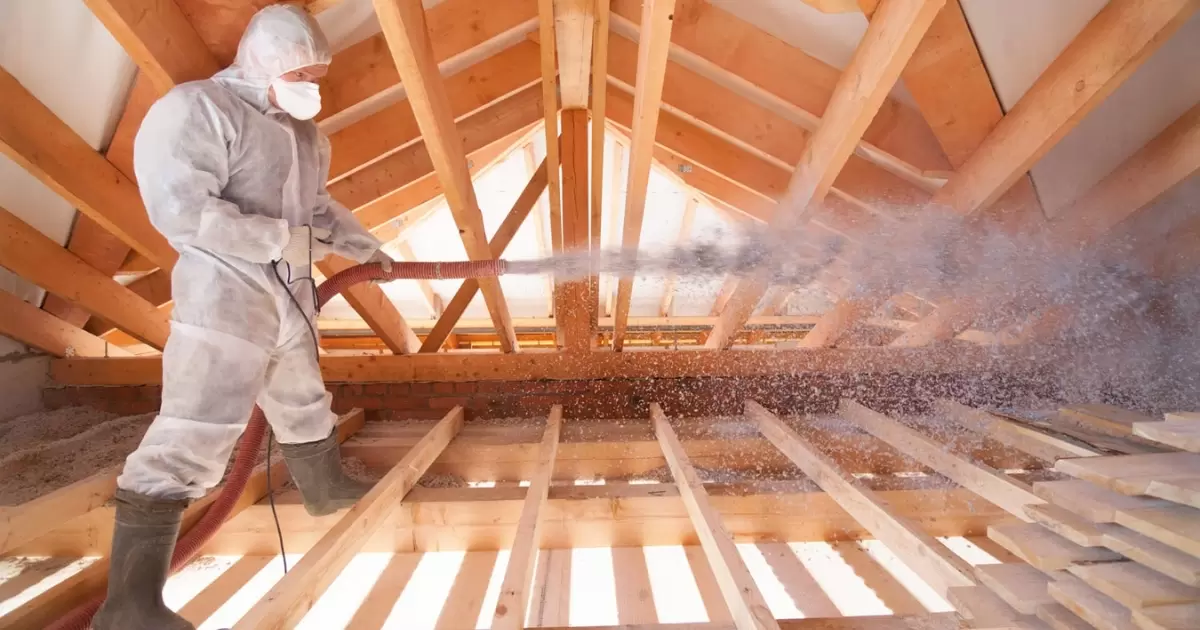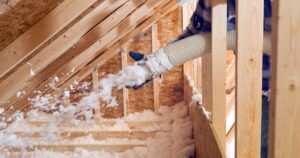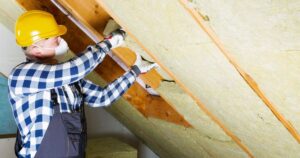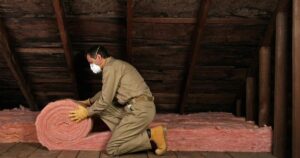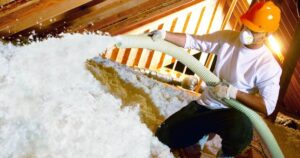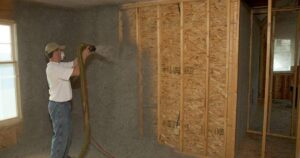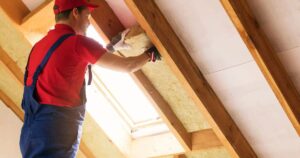Attic insulation refers to the materials installed in the space between the roof and the ceiling of a building to regulate temperature. It acts as a barrier, reducing heat transfer between the interior and exterior of a structure. The primary goal is to enhance energy efficiency by preventing heat loss in cold weather and minimizing heat gain during warmer months.
In this article, we will explore the rules and regulations regarding Credits for Insulation.
To qualify for these tax credits, the insulation installed in the attic needed to meet certain energy efficiency standards.
The credits might cover a percentage of the costs incurred in adding or upgrading insulation, up to certain limits. It’s essential to note that tax laws and incentives can change, and the availability of such credits might have evolved since then.
Overview of Tax Credits
Tax credits are financial incentives offered by the government to encourage specific behaviors or investments. In the context of attic insulation, homeowners may be eligible for tax credits based on the energy-saving attributes of the insulation installed in their homes. These credits serve as reimbursements or reductions in tax liabilities, providing economic benefits to those who invest in energy-efficient home improvements.
Attic Insulation and Tax Credits
Understanding the relationship between attic insulation and tax credits is vital for homeowners seeking to improve energy efficiency. The combination of installing eligible attic insulation and meeting specific criteria can potentially lead to financial benefits through tax credits. This pairing incentivizes individuals to upgrade their homes with energy-saving insulation while simultaneously reducing their tax burden.
Eligibility Criteria for Attic Insulation
To qualify for tax credits related to attic insulation, homeowners must meet specific eligibility criteria established by government guidelines. These criteria typically include using insulation materials that meet certain energy efficiency standards and adhering to installation guidelines outlined by relevant authorities.
Standards for Qualifying Attic Insulation
For attic insulation to qualify for tax credits, it must meet defined standards set by regulatory bodies. These standards often focus on the insulation’s thermal performance, durability, and environmental impact, ensuring that the materials used are energy-efficient and contribute to reducing overall energy consumption.
Tax Credit Amounts and Limits
The amount and limitations of tax credits related to attic insulation vary and are subject to certain caps or maximum limits. These credits can cover a percentage of the costs incurred during installation or a fixed amount. Understanding these limits is crucial for homeowners looking to benefit from these incentives.
How to Claim Tax Credits for Attic Insulation
Claiming tax credits for attic insulation involves specific documentation and a structured filing process. Homeowners need to gather and submit the necessary paperwork to receive these benefits. This involves detailing the expenses incurred, the type of insulation used, and adherence to set guidelines.
Factors Affecting Qualification
Several factors influence the qualification for tax credits linked to attic insulation. The time frame for eligibility, specific regulations, and laws play pivotal roles in determining whether homeowners qualify for these incentives. Understanding and navigating these factors are essential for claiming benefits.
Time Frame for Eligibility
The period during which homeowners can claim tax credits for attic insulation is subject to a specific time frame, typically tied to the installation date. Knowing the eligibility period is crucial as it determines when homeowners can claim the credits.
Specific Regulations and Laws
Various laws and regulations govern the eligibility and claiming process for tax credits related to attic insulation. These encompass the type of insulation, installation methods, and other relevant specifications outlined by governmental bodies.
FAQ’s
Does attic insulation qualify for a tax credit?
Yes, attic insulation can qualify for a tax credit if it meets specific criteria set forth by government guidelines.
What are the requirements for attic insulation to qualify for a tax credit?
To qualify for a tax credit, attic insulation usually needs to meet certain energy efficiency standards and be installed in a primary residence.
How can I claim a tax credit for attic insulation?
Homeowners can claim a tax credit for attic insulation by gathering necessary documentation that proves the installation meets the specified energy-saving requirements.
Conclusion
Attic insulation plays a vital role in enhancing energy efficiency within homes. Understanding the relationship between attic insulation and tax credits, meeting eligibility criteria, adhering to set standards, and navigating the claiming process are key elements for homeowners seeking financial benefits while contributing to a more energy-efficient environment. Being well-informed about these factors significantly aids in making informed decisions about home improvements.

